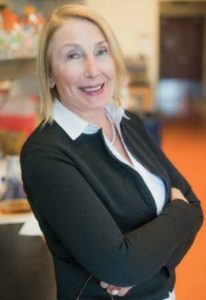Profile of Natasha Raikhel from The Scientist
 Putting Down Roots: A survivor and a pioneer, Natasha Raikhel emigrated to the U.S. from Soviet Russia and made a career of studying protein trafficking in plants.
Putting Down Roots: A survivor and a pioneer, Natasha Raikhel emigrated to the U.S. from Soviet Russia and made a career of studying protein trafficking in plants.
 Putting Down Roots: A survivor and a pioneer, Natasha Raikhel emigrated to the U.S. from Soviet Russia and made a career of studying protein trafficking in plants.
Putting Down Roots: A survivor and a pioneer, Natasha Raikhel emigrated to the U.S. from Soviet Russia and made a career of studying protein trafficking in plants.
The creators of this clever & mildly humorous 3-minute video want everyone to know, ‘We are happy to work for plant science and we want to share this feeling with others.’
Fun music and snippets of text make this video perfect for Career Day or introducing plant science in secondary or tertiary settings.
This is very interesting for job hunters. Sean Eddy from Harvard has written a blog post about how his search committee is going about identifying six people to interview from a pool of nearly 200 applications.
Nature has also written a summary of how people are responding and reacting to this post.
One of the professional skills needed for a career in science (or any career) is how to promote and sustain a workplace that is supportive to everyone. Not everyone is trained in this skill though. Here is a list of articles that can help you to master the whys and hows of workplace diversity.
Today, women earn significantly more master’s degrees than men, and in a diversity of fields. Nonetheless, women continue to face challenges to higher education, and remain under-represented in a number of industries. Thankfully, many schools and organizations recognize these trends and are taking steps to address them. Learn more about the state of women in graduate school, and the programs that help them succeed.
The Feb 2016 issue of ASBMB Today focuses on the importance of diversity and inclusion in biochemistry and molecular biology. To accompany the issue, we put together a timeline highlighting some important achievements in the life sciences made by black scientists.
In 2014, Hannah Valantine became the first chief officer for scientific workforce diversity at the National Institutes of Health. Her charge is to diversify the biomedical research workforce “by developing a vision and comprehensive strategy to expand recruitment and retention and promote inclusiveness and equity throughout the biomedical research enterprise,” according to the NIH press release that announced her appointment in January 2014.
“Poet and activist Audre Lorde said, “In our work and in our living, we must recognize that difference is a reason for celebration and growth.” She also said, “It is not our differences that divide us. It is our inability to recognize, accept and celebrate those differences.””
“Although scientists say they want full equality, they don’t do what’s necessary to achieve it.”
“If you teach, do any hiring, evaluate grants, nominate people for awards, plan meeting symposia, select speakers, invite review authors and influence institutional culture, we hope you’ll consider participating in this conversation or at least tuning in to hear what your colleagues have to say.”
An excellent list of suggestions that anyone can follow to support diversity.

